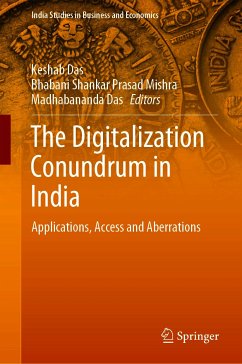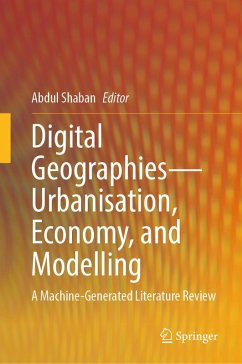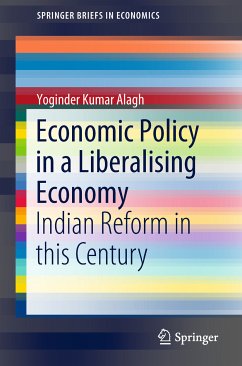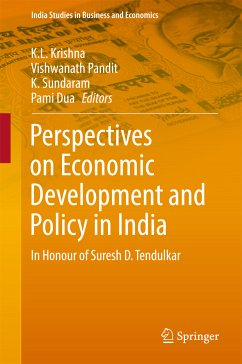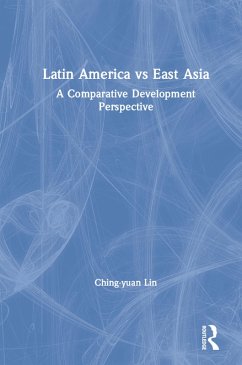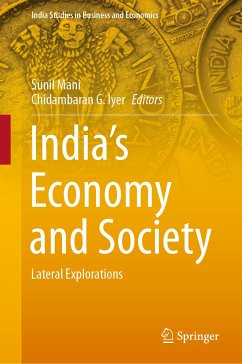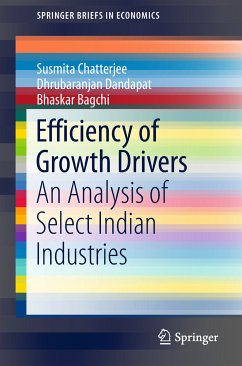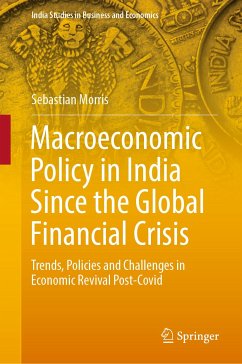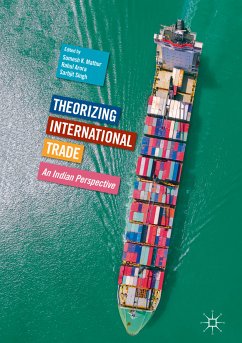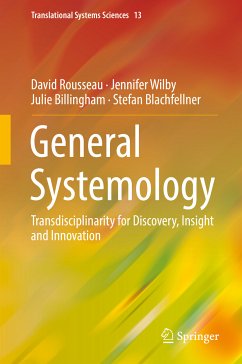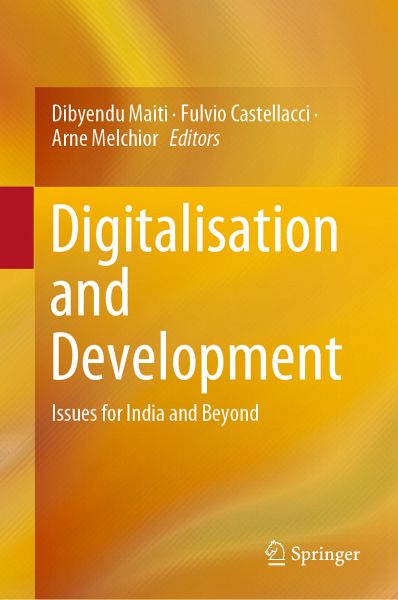
Digitalisation and Development (eBook, PDF)
Issues for India and Beyond
Redaktion: Maiti, Dibyendu; Melchior, Arne; Castellacci, Fulvio
Versandkostenfrei!
Sofort per Download lieferbar
44,95 €
inkl. MwSt.
Weitere Ausgaben:

PAYBACK Punkte
22 °P sammeln!
This book investigates the impact of information and communication technologies (ICTs) on development and well-being (beyond economic benefits) and highlights some emerging issues relating to the realities, constraints and digital divides with particular reference to India. It collects a series of novel contributions, studying the Indian experience in an international cross-country perspective. The book also discusses economic, social, and behavioural aspects of well-being as well as access to ICTs across regions, states and individuals to account for the digital divide. The book establishes a...
This book investigates the impact of information and communication technologies (ICTs) on development and well-being (beyond economic benefits) and highlights some emerging issues relating to the realities, constraints and digital divides with particular reference to India. It collects a series of novel contributions, studying the Indian experience in an international cross-country perspective. The book also discusses economic, social, and behavioural aspects of well-being as well as access to ICTs across regions, states and individuals to account for the digital divide. The book establishes an aggregate relationship between ICT exposure and well-being at the country level and addresses a number of fundamental issues, such as whether ICT raises the level of transparency and governance. Based on case studies and anecdotal evidence, it then further assesses the effective implementation of service delivery through ICT innovations.
The book is divided into four parts: Theintroductory part surveys the literature and presents background information on the Indian case; introduces the main themes on the relationships between ICT, socio-economic development and digital divides; and provides a summary and roadmap to the chapters of the book. Part II focuses on the impact of ICT on economic performance, including economic growth, productivity and trade. Part III examines the extent of the digital divides in India, including international, regional as well as inter-personal inequality. Finally, Part IV investigates the impact of ICT on governance, users' well-being and social outcomes. Combining insights from analyses of a variety of socio-economic dimensions related to digitalisation, this book is relevant for a wide range of scholars and researchers across disciplines, as well as practitioners and policy-makers. While the book has a main focus on India, various contributions take an international cross-country comparative perspective, and the results have general relevance for digitalisation and development. On the whole, the main message of this book is that the impact of ICTs is contingent upon other assets, capabilities and institutional conditions. National policies should, therefore, not only promote digitalization as such but also ensure its co-evolution and complementarity with a variety of other country-specific factors.
Chapter 'Digitalisation and Development: Issues for India and Beyond' of this book is available open access under a CC BY 4.0 license at link.springer.com
The book is divided into four parts: Theintroductory part surveys the literature and presents background information on the Indian case; introduces the main themes on the relationships between ICT, socio-economic development and digital divides; and provides a summary and roadmap to the chapters of the book. Part II focuses on the impact of ICT on economic performance, including economic growth, productivity and trade. Part III examines the extent of the digital divides in India, including international, regional as well as inter-personal inequality. Finally, Part IV investigates the impact of ICT on governance, users' well-being and social outcomes. Combining insights from analyses of a variety of socio-economic dimensions related to digitalisation, this book is relevant for a wide range of scholars and researchers across disciplines, as well as practitioners and policy-makers. While the book has a main focus on India, various contributions take an international cross-country comparative perspective, and the results have general relevance for digitalisation and development. On the whole, the main message of this book is that the impact of ICTs is contingent upon other assets, capabilities and institutional conditions. National policies should, therefore, not only promote digitalization as such but also ensure its co-evolution and complementarity with a variety of other country-specific factors.
Chapter 'Digitalisation and Development: Issues for India and Beyond' of this book is available open access under a CC BY 4.0 license at link.springer.com
Dieser Download kann aus rechtlichen Gründen nur mit Rechnungsadresse in A, B, BG, CY, CZ, D, DK, EW, E, FIN, F, GR, HR, H, IRL, I, LT, L, LR, M, NL, PL, P, R, S, SLO, SK ausgeliefert werden.



